Water Quality Living in Rural Manitoba
In this article, learn about water quality living in rural Manitoba. Moving to the country means dealing with hardness, iron, manganese, and other water characteristics not encountered in the city.
As mentioned in our last article, 5 Things to Know About Swapping Winnipeg for Country Living, perhaps one of the biggest surprises awaiting new country residents is water quality. If you are used to city water, moving to rural Manitoba usually comes with a plethora of water-related issues.
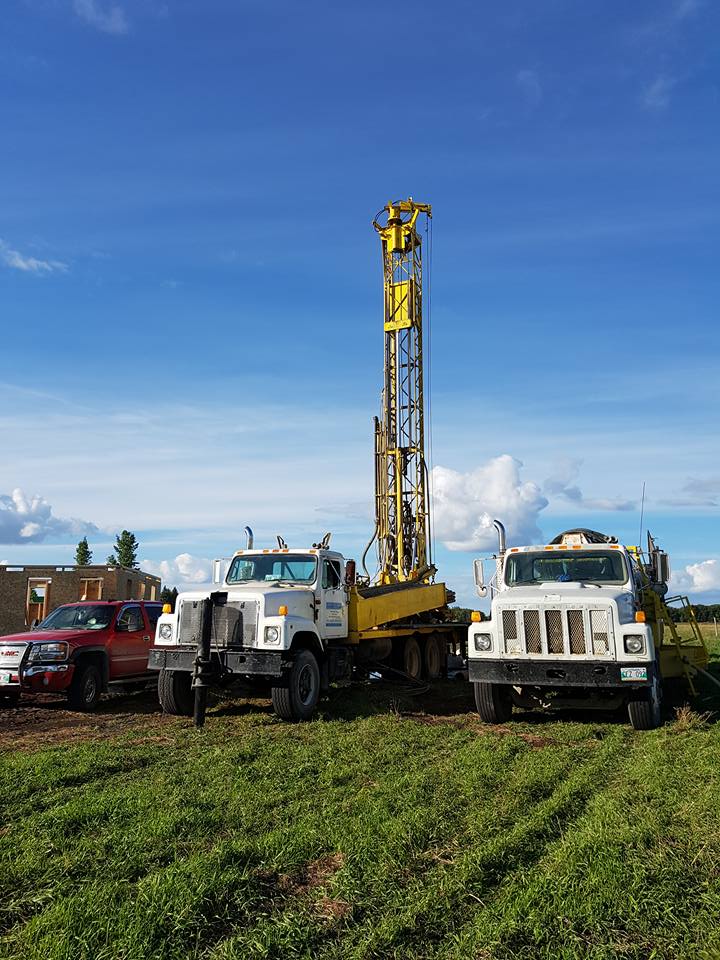 Assuming you don’t tie into a municipal water supply, you will be dealing with water drawn from a well. If you’re building a new home, you will need to hire a company to drill a new well and install a pump. Depending upon the depth of the well, you’ll be looking at $6,500+ to have this done. If you inherit a well on an existing property, you need to learn as much as you can about it. What is the depth. When was it drilled? When was the last time the pump was serviced?
Assuming you don’t tie into a municipal water supply, you will be dealing with water drawn from a well. If you’re building a new home, you will need to hire a company to drill a new well and install a pump. Depending upon the depth of the well, you’ll be looking at $6,500+ to have this done. If you inherit a well on an existing property, you need to learn as much as you can about it. What is the depth. When was it drilled? When was the last time the pump was serviced?
Next you need to know your water characteristics. A water test is a must. Testing for bacteria with a certified lab is another definite to-do.
Why a Test?
Winnipeg sources its water from Shoal Lake, part of the Lake of the Woods water system. When the piped in water arrives in town, the City of Winnipeg Water & Waste Department puts it through extensive treatment to remove potential contaminants, pathogens, sediment, and other undesirable characteristics to make it drinkable and safe (potable).
When you draw water from a private well, you alone are responsible to the potability and overall quality of your water. Not only do you need to ensure the water is safe to drink, but you want to protect your home and family from other factors not encountered in the city.
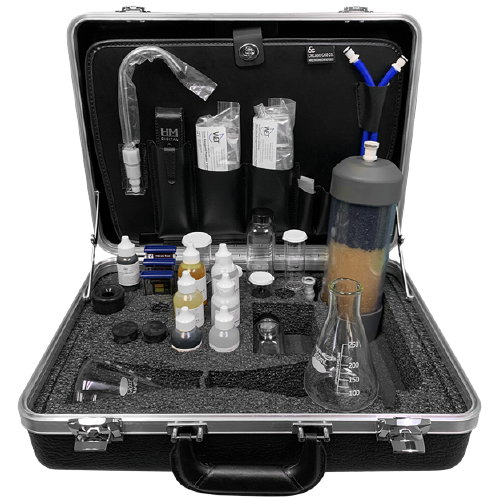 The first step in treating your private well water is to know its attributes. What are the negative aspects of your water that need to be treated? The only way to know that is with a water test.
The first step in treating your private well water is to know its attributes. What are the negative aspects of your water that need to be treated? The only way to know that is with a water test.
Common Characteristics to Treat
For anyone living in rural Manitoba, these are the main characteristics you can expect to test for and treat:
Hardness
The hardness of water is determined by its calcium and magnesium content. When you see white build-up on showerheads, called limescale or scale, this is the result of hard water. Because of the high limestone content in the Manitoba soils, we have some of the highest hardness levels in North America (see Figure 1).
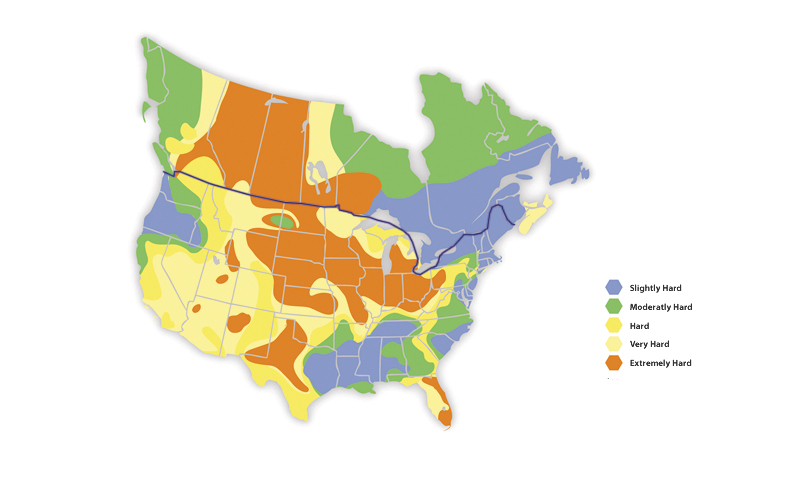
Winnipeg’s water typically has a hardness score around 3 grains per gallon (gpg). Well water in Manitoba often tests 40 at gpg or higher. The water on our property north of Lockport tests at 56 gpg. If you think white showerheads are a pain in Winnipeg, wait to you see what rural water does them!
Hard water is the number one issue anyone moving to the country will need to treat. Hard water will not only clog your showerheads, but it will also cause havoc for your hot water tank and other water-using appliances like the dishwater and washing machine. Left untreated it will mean more cleaning of water stains and high usage of detergents and soaps. And hard water is a scourge for hair and skin.
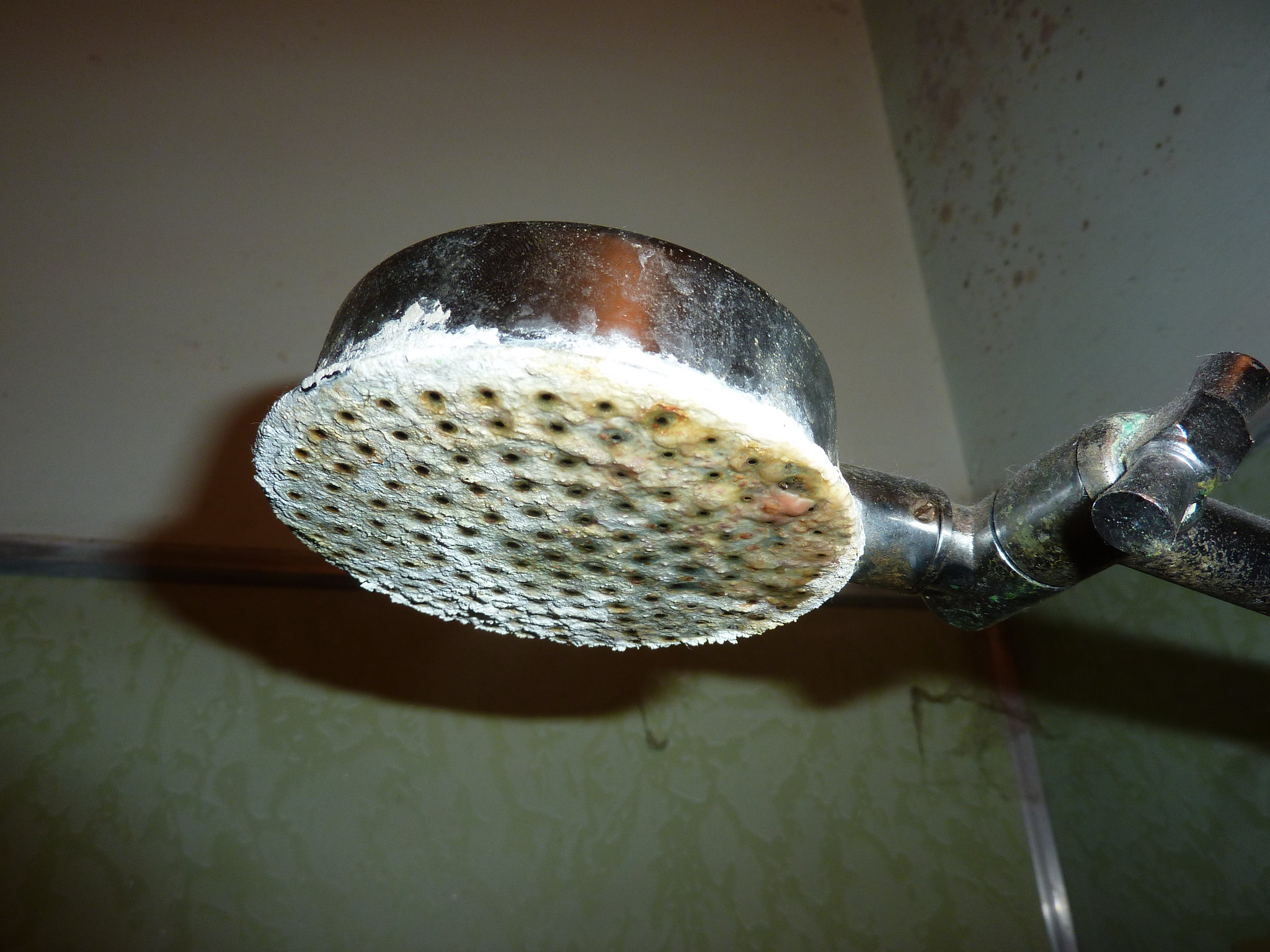 A water softener is the best, most efficient way of eliminating the effects of hard water. And once you experience soft water, you’ll never want to be without it.
A water softener is the best, most efficient way of eliminating the effects of hard water. And once you experience soft water, you’ll never want to be without it.
Iron
While not universally present in Manitoba’s groundwater like hardness, iron is a culprit in many wells across the province. While not a health hazard, iron can have adverse effects on your home’s plumbing fixtures and water-using appliances.
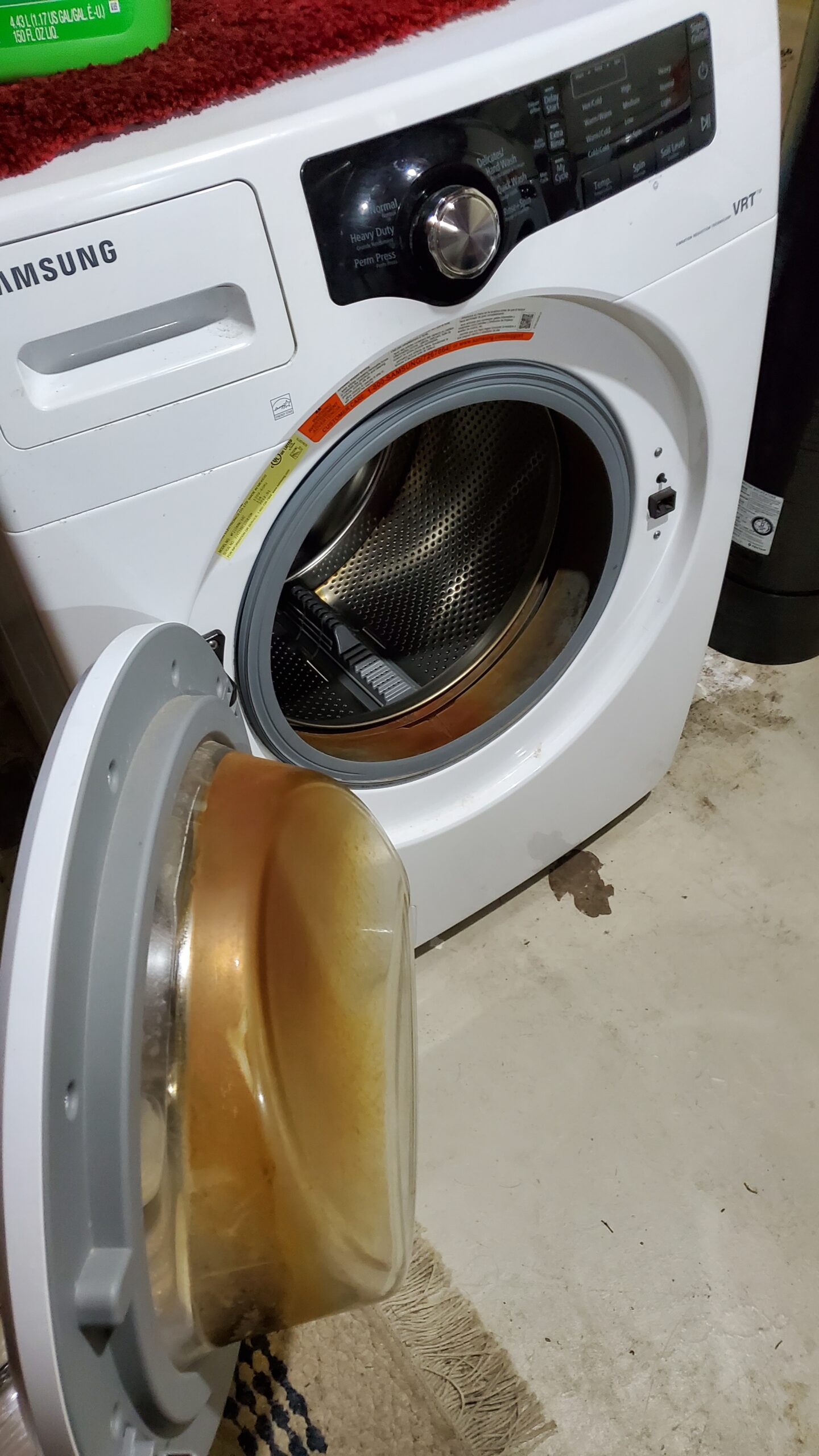
There are three types of iron found in wells. Ferrous iron is invisible and fully dissolved in water. Ferric iron is visible in a glass of water, with a telltale orange or rust colour. Iron bacteria is a nasty looking goop that usually is found in toilet tanks.
A water softener can deal with ferrous iron at low levels. But any sign of ferric iron, which is most often the case, requires filtration before the water hits the softener. Iron bacteria, which isn’t too common in these parts, often requires super-oxidisation or ozone to bring it under control.
As you can see in Figure 2, iron can prove nasty if not dealt with properly.
Sulphur
If you smell rotten eggs when you turn on your tap, you have a sulphur, or hydrogen sulphide problem. This is usually the result of organic matter accumulating in groundwater. When you draw that sulphur-laced ground water into your home, the rotten egg smell becomes noticeable. This can be further exasperated when sulphur accumulates in the hot water tank.
Like iron, sulphur requires filtration over and above that provided by a water softener. Depending on the levels of sulphur and iron, an aeration filter may deal with both problems. But higher levels may require a separate filter for each problem.
Manganese
Manganese is a naturally occurring element essential to life. But in excess, it can cause problems to your home and to your health.
In excess, manganese can stain plumbing fixtures and laundry with a black, brown, or orange colour. Health Canada warns of the dangers of manganese in levels above 0.12 parts per million. This is a must to test for in your well water.
Manganese is often present with iron in well water. Luckily, an aerating filter used to treat iron will also deal with most manganese issues. A bonus is a water softener can also catch any missed manganese.
Bacteria
Winnipeg has invested millions in making it water potable. It uses of chemicals like chlorine and UV filtration work to make its drinking water safe. As the steward of your own water system, you have no way of knowing if undesirable bacteria or pathogens are in your well. A test at a certified lab will confirm the presence of total coliform (TC) bacteria or Escherichia coli or E. coli (EC) bacteria. But many more forms of bacteria can exist in wells.
 While not a common occurrence, an undetected pathogen can cause serious issues when ingested long term. The only way to protect your family against virtually all pathogens and bacteria is using UV filtration. Using ultraviolet light—the same methodology used by Winnipeg to treat its water—will give well water owners that extra peace of mind of the safety of their drinking water.
While not a common occurrence, an undetected pathogen can cause serious issues when ingested long term. The only way to protect your family against virtually all pathogens and bacteria is using UV filtration. Using ultraviolet light—the same methodology used by Winnipeg to treat its water—will give well water owners that extra peace of mind of the safety of their drinking water.
While there are other factors to consider when evaluating the quality of your rural home’s water, these are the primary ones to know, understand, and treat.
Living a life outside Winnipeg has been terrific for our family. Should you decide to do the same, make sure you understand the importance of knowing your water. If you take that responsibility seriously, you will end up with superior water quality to that you’ve been using in the city.
As you can see, water quality living in rural Manitoba is serious business. The best place to start is to have your water quality tested. Contact us today for a FREE water test
